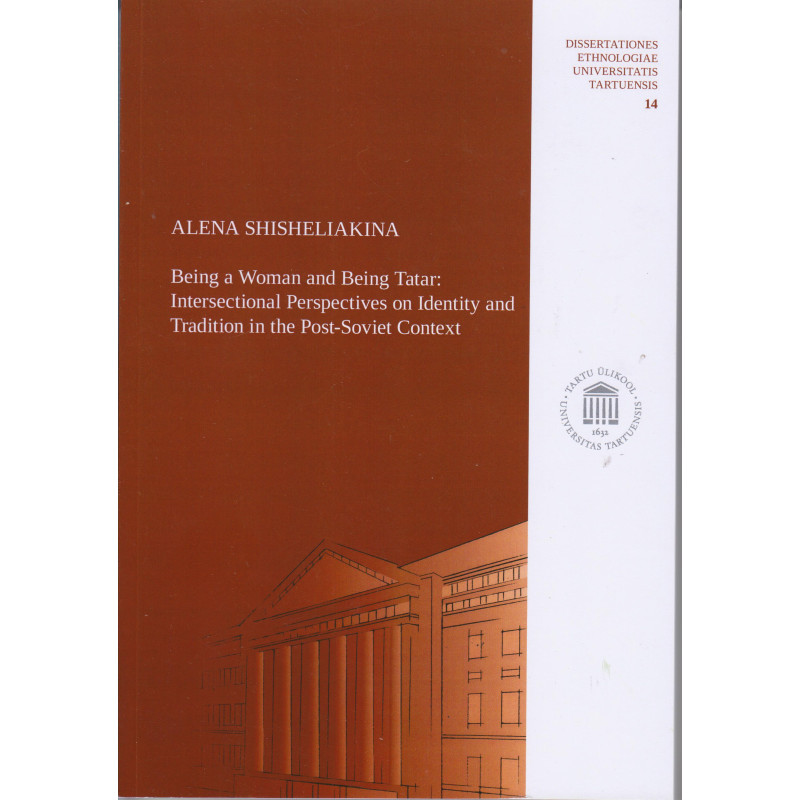



Tartu : University of Tartu Press, 2022
212 p.
Paperback, in very good condition.
Theses(doctorate). Series: Dissertationes ethnologiae Universitatis Tartuensis ; 14.
Based on ethnographic materials collected among Tatar communities in Siberia and Estonia, I discuss in the thesis how in the post-Soviet situation, people with intersectional identities, like women, Tatar and Muslim, negotiate their identity and tradition. My thesis problematizes gender and ethnic identities from the standpoint of local rather than universal positions because I put women’s subjectivity at the core. Themes in women's tradition are interwoven with bodily experience, like modesty, including veiling and virginity, abduction, and Islamic marriage (nikah). Beyond sexuality, main themes are interconnected with family relations, like the distribution of domestic labor, hierarchy, relations with mothers-in-law, and memories of grandmothers. Women’s voices tie tradition with language, as well as ethnic and religious practices, forming a variety of patterns of fluid and multifaceted women’s identities. Women link the notion of “pure” tradition to a pre-Soviet period. For justification of their views, they refer to a variety of sources like family photos, family stories, memories, academic research, of different chronological periods, which leads to a contestation of different understandings of what tradition is in Tatar communities.